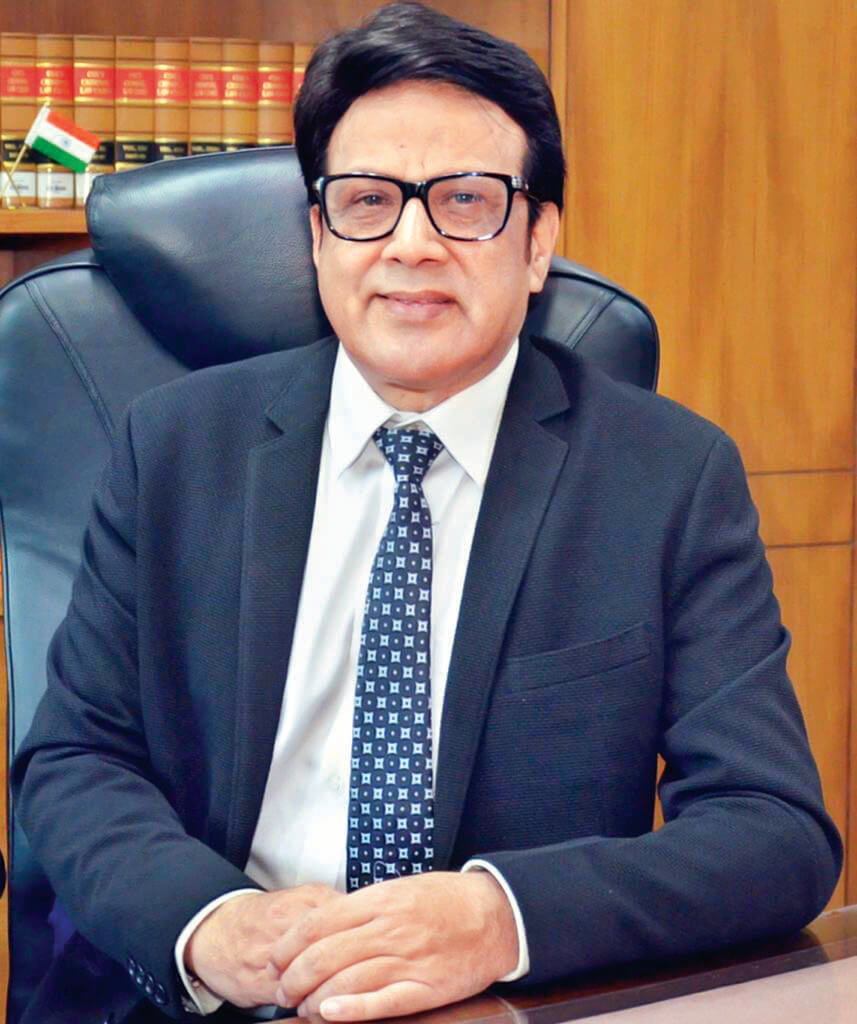Sanjay Raman Sinha (SRS): You have been appointed Vice-Chancellor of the prestigious National Law University Delhi. What is your vision for the institute?
Prof GS Bajpai (PB): NLU, Delhi, has an illustrious legacy in terms of quality research, publications and international collaborations. My focus will be to promote empirical research, diversify areas of research and encourage national and international collaboration. Regarding the curriculum, I want to make it more inter-disciplinary and in tune with the guiding principles of the National Education Policy 2020. Altering the legal pedagogy and improving the engagements with all stakeholders is another priority.
SRS: What are the initial initiatives you plan for the betterment of NLU Delhi?
PB: In the short-term, priority areas include better resource allocation within the university, rationalisation, better utilisation of funds, updating the curriculum and bringing new projects in cutting-edge areas. In the long-term, my aim would be to strengthen the position of NLU Delhi as a leading law university by focusing on research and publications and developing new-age pedagogy and a community-and-industry-linked curriculum.
SRS: How are NLUs different from other law schools?
PB: I cannot comment on other NLUs, but I can say that in NLU Delhi, students get a different experience as compared to students in other law schools. Being situated in Delhi, the seat of the Supreme Court and High Court, gives it a unique edge. Delhi also has the top Tier-I law firms and is home to many legal luminaries. Thus, NLU Delhi students have rich exposure. Moreover, our pedagogy, curriculum, and research ethos are very competitive and challenging. This makes our law programmes one of the best in the country.
SRS: How satisfied are you with the existing curriculum? What changes can be made?
PB: NLU Delhi can boast of a curriculum that is not only academically rigorous and challenging, but meant to broaden the intellectual and critical horizons of the students. We lay emphasis not just on classroom learning, but learning that happens outside the class. We make sure that our students are exposed to subjects and theories from other disciplines that are critical in developing a broader understanding of the law. Thus, we have several seminar courses which expose students to non-traditional subject choices like Energy Laws & Policy; Law, Society and the Queer; Feminist Political Theory; White Collar Crimes in India–Law; and Analysis, Healthcare and Life Sciences. Going forward, our aim is to draft our curriculum on global standards. We also want to increase the focus on clinical education. While we already have clinical courses running on campus, their structural and systemic growth will be our focus.
SRS: NLUs are held to be elitist, especially due to the high fee structure. What can be done for deserving but financially weak students?
PB: I am aware of this impression that has been created. However, it is not accurate. One of the objectives of NLU Delhi is to make legal education accessible and we have been consistently striving towards that end. We have students from all financial backgrounds and from socially disadvantaged regions and geographies. NLU Delhi stands firm on its commitment to ensure that it remains a free and open space where opportunity is equally distributed among students, irrespective of where they come from. We have scholarships for meritorious students and we also provide full fee-waiver on a case-to-case basis. We believe that no deserving candidate should have to withdraw admission on account of lack of resources.
SRS: NLUD is known for its research ethos. You also have a strong research background. What work is going on and what more needs to be done?
PB: NLU Delhi has played a pioneering role in research. Our autonomous faculty-led research centres have done commendable work on socially relevant issues such as death penalty (under Project 39A), climate change, cyber law, Intellectual Property Rights (IPR) (under CIIPC), regulatory studies, Artificial Intelligence, tech and data protection. Our aim will be to incorporate newer areas and make its corpus of publications more diverse. Also, we want to increase collaboration with foreign universities, think tanks and civil society groups so that we can create a much larger impact.
SRS: With globalisation, law studies have become challenging. NLUD has some tie-ups with international universities. What needs to be done to keep the studies in tune with international law?
PB: NLU Delhi has tie-ups with some leading global universities such as SOAS University of London, University of Melbourne and University of Antwerp among others. These associations foster better exchange of ideas and culture, lead to research and curriculum development and provide exposure to our students and faculty.


